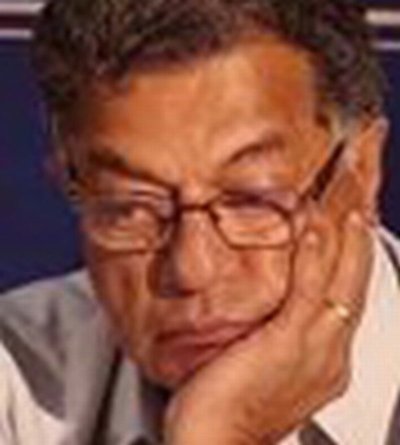October 1, 2009
Evolution of entertainment in India is Danz lecturer’s topic
Playwright, filmmaker and actor Girish Karnad will give a Danz Lecture, Entertaining India, at 6:30 p.m. Thursday, Oct. 8 in 130 Kane.
This lecture will look at how the engagement of India with the West reshaped the world of Indian entertainment. Until the nineteenth century, entertainment in India was the sole prerogative of certain communities which had traditionally specialized in specific performing forms and crafts. The new laissez faire philosophy of the colonial masters introduced the notion that entertainment was a business enterprise, open to all castes and subject to the free play of market forces: anyone with the requisite capital — of money, talent or daring — could now invest in it.
This development radically altered not only the meaning of “entertainment;” it led Indians to redefine what they meant by their “arts” and therefore by their “heritage.” It culminated in a fundamental reorientation of the entire cultural sphere.
Karnad writes in Kannada, the language of the State of Karnataka and has translated his plays into English. He was educated at Karnataka University, Dharwad and at Oxford where he was a Rhodes Scholar.
He started his working life as an editor with the Oxford University Press, India, and has gone on to serve as director of the Film and Television Institute of India, chairman of the Sangeet Natak Akademi (the national academy of the performing arts) and director of The Nehru Centre, London. He was a visiting professor and Fulbright playwright-in-residence at the University of Chicago.
His play, Naga-Mandala, was premiered in the US in 1993 by the Guthrie Theater, Minneapolis, which then commissioned The Fire and the Rain. In 2002, the Haymarket Theatre, in Leicester, UK, commissioned and premiered Bali the Sacrifice. He scripted and presented the film, The Bhagavad Gita, as part of the series, Art that Shook the World, for BBC Two.
The International Theatre Institute of the UNESCO, Paris has nominated him World Theatre Ambassador. He was awarded the Padma Bhushan in 1992 by the President of India and has received the Bharatiya Jnanpith, the country’s highest literary award.
The lecture is free and open to the public. Like all events, space is limited. Therefore, advance registration is offered for your convenience. For more information and to register, visit: http://www.UWalum.com/events/.



